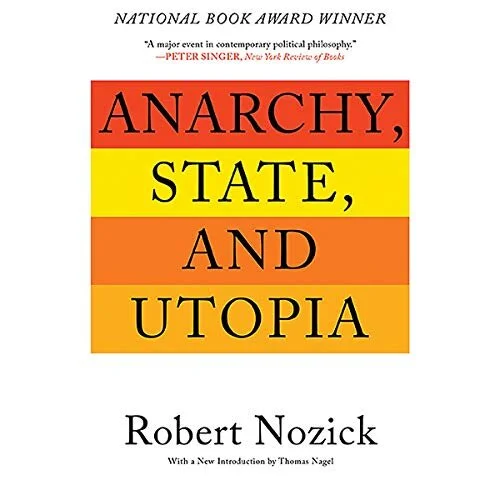In The Machine Stops E. M. Forster wrote an uncanny prediction of online politics today
In 1909 E. M. Forster published a novella called The Machine Stops. Forster is best known as the author of Howard’s End and A Room With A View, Edwardian-era novels about the social and romantic lives of wealthy people, so it may surprise you that The Machine Stops is a work of science fiction focusing on the lives of ordinary people in the future.
The novella imagines a future where everyone lives by themselves, underground, in small pods that are described as like bees’ honeycombs. Everyone is physically isolated from each other, but is connected via The Machine.
In this future, people rarely leave their pods but connect to each other via the telephone and plates that show images of the person being spoken to. The people who inhabit The Machine engage in what can only be described as an uncannily prescient depiction of online debating. They shun first-hand experiences, but are intellectually stimulated by the discourse around ideas. Usually, this is the discourse around the discourse around ideas.
An uncanny prediction of the present
Despite Forster’s novella being written over a century ago, it accurately describes a world where people are connected to each other via social media. It also shows how people perceive the world through social media, rather than first-hand experience of it.
The people of Forster’s story experience the world via The Machine and what it shows to them, just as we experience the world via what we are shown by the social media platforms. One aspect of the world of the story that Forster doesn’t explore is the degree to which The Machine controls what ideas are discussed. The world is too vast for The Machine’s users, or subjects, to perceive it all and thus it must be selective in discourse it shows to its users.
The Machine of our world
In our world, we know that this process of social media platforms selecting what we see has had profound political implications. Again there is too much content for the users of social media platforms to be shown it all so what a user sees is curated for them. The goal of a Facebook or Twitter is to maximise the time that we spend on their sites (so that they can show us more adverts (how they make their money), so when personalising our timelines the platforms prioritise content that will keep is engaged.
We have fed our whole lives into these platforms, so they have a lot of information about the things that keep us engaged. This is harmless enough when the platforms are showing me more Simpsons clips, because I previously watched some Simpsons clips, however it becomes more problematic when it comes to news and politics.
Attention-grabbing and extreme content
Personalising what news and political information we see based on what we engaged with well inevitably lead to our views not being challenged and more attention-grabbing (i.e. extreme) version of what we believe being shown to us.
In an article for Nieman Reports, Adrienne LaFrance spoke to product manager for Google News (a platform that personalises the news content its users’ see) Anand Paka who said: “Just due to the deluge of information, users do want ways to control information overload. In other words, why should I read the news that I don’t care about?”
Removing the news that we don’t care about is important because it removes our collective understanding of what the news is. In the same Nieman Reports article, LaFrance writes: “What’s important is how people use the news to have a discussion.”
She goes on to say: “You may have friends or colleagues, and you read the same things in common. You may decide different things about it. Then you debate with those people. If you’re not even seeing the same news story, it leaves you with a much narrower set of people with whom you share that common ground. You’re losing the common ground of news.”
A gateway to far-right politics
The breakdown of our shared understanding of the news leads the breakdown of our shared understanding of what the world is. This shared understanding is part of how we recognise extreme positions and avoid them. By perceiving politics through social media we have two problems: more extreme content being fed to us to hold our attention and a breakdown of our collective understanding of the news so that we don’t know what extreme is anymore.
A good example of this is a New York Times story about, Caleb Cain, a man who was radicalised into the Alt-Right by watching videos on YouTube. YouTube was showing Cain what held his attention and, in an attempt to keep him on the platform, it served him up increasingly extreme right-wing content. Through seeing politics only through what was served up to him online, Cain drifted away from a perception of the world shared by many people and ended up having a narrow perception of the world shape by extreme-right wing ideas.
The Machine is not the world
Key to this is that Cain only perceived the world through what YouTube (and other tech platforms) were showing him. Like the people in Forest’s novella, his politics wasn’t shaped by first-hand experience of the world, it was shaped by what The Machine was showing him.
The lesson to take from this is to remember that The Machine is not the world. It’s part of how we understand the world, but it should not take the place of the world. This a problem facing left-wing politics. So much of politics today is done via social media, but social media is not the world.
The Machine obscures the starlight
In Forster’s novella most people live underground and don’t see day light or starlight. The machine has physically obscured the starlight, but it has also done this in a metaphorical way. In his book Stand Out of Our Light: Freedom and Resistance in the Attention Economy, James Williams describes the different ways that social media distracts us from our lives. One way is by obscuring what Williams calls “the starlight,” which is our ability to navigate by our higher goals and values, our guiding stars.
Social media platforms cause us to focus our activity on the metrics they can measure, such as likes, shares and clicks, over things that are meaningful to people, such as human connections or happiness, that they cannot measure. Through overuse of social media our goals shift from things that matter to us to things that matter to the platforms. This is obscuring our starlight.
In the novella The Machine has achieved this via making the focus of human interaction discussing ideas via The Machine, which it understands, rather than our values of human connections. In our world, the starlight is obscured when we change our behaviour to maximise the likes or shares on social media instead of what brings us happiness.
Obscuring our political starlight
There is a political aspect to this as well as personal one. Now that so much of politics is done via social media, the starlight of our politics has been obscured as well. Too much of our political action is focused on what gets the most likes or retweets or who has delivered the most shared own on their political opponents, instead of changing minds or winning elections. I am as guilty as anyone of having my starlight obscured by social media.
The discourse around who said what about whom and who has delivered the sickest Twitter burn is taking the place of real activism, engaging people, and trying to win elections. The world is under threat. The far-right is on the march. We need to work fast to avert an environmental disaster. We need to tackle rising homelessness, inequality and child poverty. However, what we are focused on is what The Machine wants our goals to be rather than what we need our goals to be.
Not the end of the world, yet
Fortunately, all is not lost for us like it is for the people of Forster’s story who are so reliant on The Machine that when it stops their society ends. Cain eventually stumbled on some left-wing YouTube content and de-programmed himself, which shows that we all are capable of realising that the world is not what The Machine is showing us.
It’s not the end of the world, yet. We don’t need to wait for a disaster to realise that The Machine is not everything. We can escape the machine now before it is too late.











